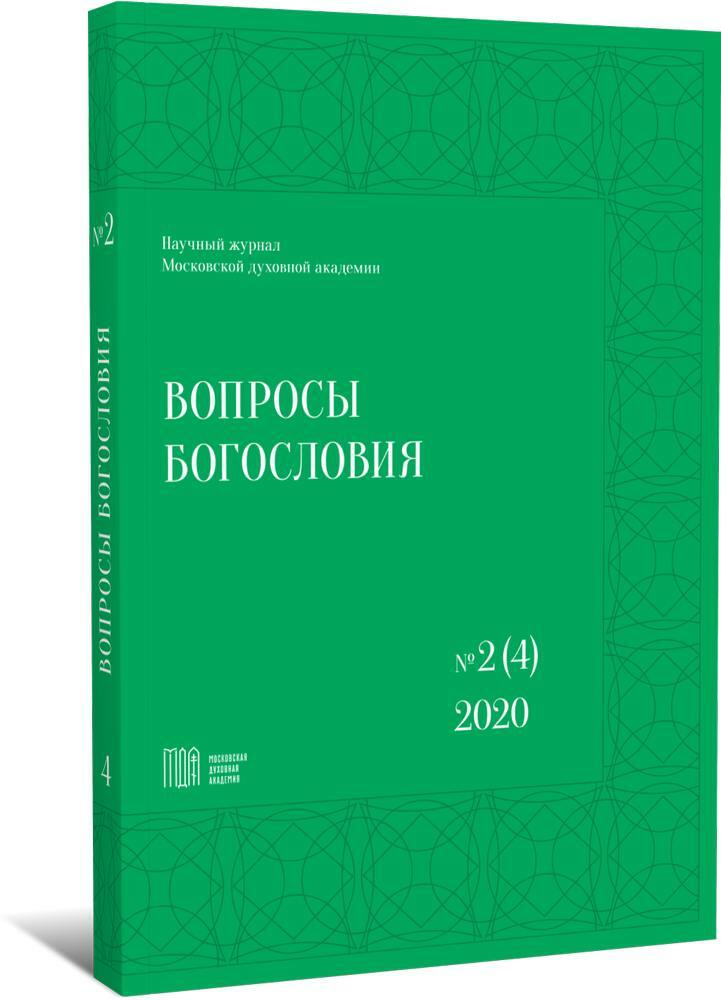The Neurotic Religiosity: Genesis, Presenting Features, and Management Prospects within the Eastern Orthodox Milieu
DOI:
https://doi.org/10.31802/PWG.2020.4.2.001Keywords:
neurotic religiosity, neurosis, pastoral psychology, pastoral theology, confession, absolution, spiritual guidanceAbstract
The neurotic religiosity is a complex issue combined by religious faith and a range of human neurotic dissociations. Though widespread a phenomenon, it has not been enough addressed within the framework of Eastern Orthodox pastoral theology and religious anthropology. The author offers an analysis of origins and development of neurotic religiosity as well as its characteristic manifestations in a form that is meant to facilitate further theological study of the issue. Also, the author shares his vision of addressing the issue theologically and observes key points that might be considered by the clergy who provide pastoral ministry to persons with neurotic religiosity. The method applied by the author is based on using classical sources, including S. Freud, K. Jung, K. Horney, and S. Pfeifer, within a milieu shaped by some modern Eastern Orthodox researchers as A. Lorgus, J. Kornarakis, M. Filonik, and N. Skuratovskaya.
Downloads
References
Корнаракис И. Фантастический христианин в сравнении со святоотеческим человеком / коммент., пер. с греч. архим. Симеона (Гагатика). Ахтырка: Ахтырский Свято-Троицкий монастырь, 2016.
Крылов Г. А. Этимологический словарь русского языка. СПб.: Полиграфуслуги, 2005.
Кюнг Г. Фрейд и будущее религии. М.: ББИ, 2013.
Лоргус А., прот. Интервью // Личный архив автора. Москаленко В. Д. Зависимость — семейная болезнь. М.: Интконсультирования и системных решений, 2014.
Позов А. Основы древнецерковной антропологии: в 2 т. Т. 1: Сын человеческий. СПб.: СПбГУ, 2008.
Порфирий Кавсокаливит, прп. Слова о воспитании детей. М.: Никея, 2011.
Порфирий Кавсокаливит, прп. Житие и слова. Малоярославец: Свято-Никольский Черноостровский женский мон-рь, 2014.
Рощеня Д., Скуратовская Н. Все мы немного невротики // Православие и мир. [Электронный ресурс]. URL: https://www.pravmir.ru/vsemyinemnogonevrotikiotkudarodomnevrotichnostichtosneyproishoditvtserkvi/ (дата обращения 01.10.2020).
Софроний (Сахаров), архим. Подвиг богопознания: Письма с Афона (к Д. Бальфуру). Сергиев Посад: СТСЛ, 2010.
Филоник М. С. Психологический анализ феноменов искажений религиозного опыта // Консультативная психология и психотерапия. 2015. Т. 23. № 5 (89). С. 107–122.
Филоник М. С. Психологический анализ феноменов искажений религиозного опыта: проблемы зависимости от авторитета и искажений образа Бога // Консультативная психология и психотерапия. 2016. Т. 24. № 5 (94). С. 115–134.
Хорни К. Невроз и личностный рост: Борьба за самореализацию. СПб.: Восточно-европейский ин-т психоанализа, 1997.
Эмилиан (Вафидис), архим. Слова и наставления. Печать истинная. Жизнь в Духе. М.: Храм св. мц. Татианы, 2006.
Эмилиан (Вафидис), архим. Благодатный путь: Толкование на житие преподобного Нила Калабрийского. Екатеринбург: Александро-Невский Ново-Тихвинский женский монастырь, 2018.
Arterburn S., Felton J. Faith that hurts, faith that heals. Nashville (TN): Thomas Nelson Publishers, 1991.
Pfeifer S. Faithinduced Neurosis: Myth or Reality? // Journal of Psychology and Theology. 1994. Vol. 22. P. 87–96.
Downloads
Published
How to Cite
Issue
Section
Categories
License

This work is licensed under a Creative Commons Attribution-ShareAlike 4.0 International License.







